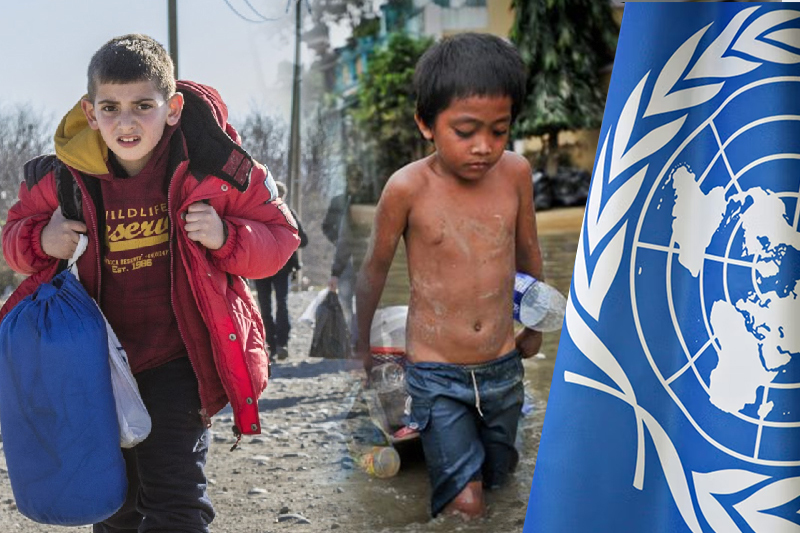

how to protect children forced to migrate due


These principles were launched by the International Organization for Migration (IOM), the UN Children’s Fund (UNICEF), Georgetown University in Washington, DC, and the United Nations University (UNU), located in Tokyo, Japan.
The Guiding Principles “were developed with this specific objective in mind. This tool helps navigate the complex nexus of migrant rights, children’s rights, and climate change in order to respond more quickly and effectively to the needs of children on the move in the context of climate change.”
The UN agencies and partners have underlined that majority of migration policies for children do not keep into account the displacement rendered by the climate crisis, overlooking the unique requirements of children migrated due to climate changes.
“The climate emergency has and will continue to have profound implications for human mobility. Its impacts will be most severe with particular segments of our communities such as children; we cannot endanger future generations,” said António Vitorino, the IOM Director General.
“With these guiding principles we aim to ensure visibility to their needs and rights, both in policy debates and programming. Managing migration and addressing displacement of children in the context of climate change, environmental degradation and disasters, is an immense challenge that we must address now.”
Existing socio-economic factors, regional conflicts, demographic challenges are now being amalgamated with climate change impacts that are pushing migration of people. According to the UN, about 10 million children were displaced in 2020 following weather-related changes.
“Every day, rising sea levels, hurricanes, wildfires, and failing crops are pushing more and more children and families from their homes,” said Catherine Russell, the UNICEF Executive Director. “Displaced children are at greater risk of abuse, trafficking, and exploitation. They are more likely to lose access to education and healthcare. And they are frequently forced into early marriage and child labour.”
The guiding principles provide a foundation to national and local governments, international organizations, and civil society groups for building policies focused towards protecting children’s rights. “While these children benefit from a range of international and national protections, the subject matter is highly technical and difficult to access, creating a protection deficit for child migrants,” said Mr. Passarelli, Executive Director of the university’s Centre for Policy Research.
Novo Energy, the battery manufacturing initiative co-founded by Volvo Cars and Northvolt, announced that it would cut 50% of its…
The Trump administration announced a national review targeting approximately 450,000 migrant children who crossed the US-Mexico border without their parents,…
In a new effort to speed up deportation processes, the Trump administration is unveiling an unpopular application, which gives undocumented…
In a bid to advance inclusive hiring and access a larger talent pool, Deloitte has opened up multiple roles for…
At the 2025 Great Place To Work Summit in Las Vegas, Marriott's CEO Anthony Capuano showed a powerful moment that…
A new report from Save the Children and Plan International, provides an alarming description of the experiences migrant children have…
This website uses cookies.
Read More